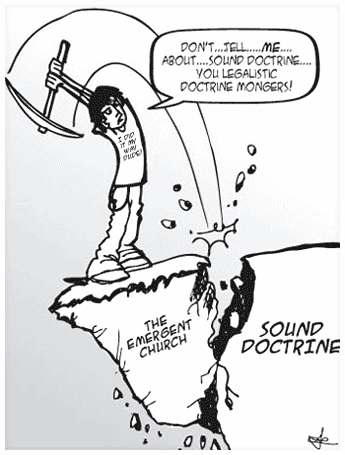I have written about unity being in a shared (correct) doctrine in previous posts, but I wanted to explore what theologians throughout church history have taught.
Starting with the church fathers, St. Cyprian wrote "The Unity of the Church", his greatest work, to counter the Novatian schism. In it, he argues that there can only be one united church:
"The spouse of Christ cannot commit adultery. She is uncorrupted and pure. She knows one home, she guards with chaste modesty the sanctity of one bed. She keeps us for God. She appoints the sons whom she has born for the kingdom. Whoever is separated from the Church and unites with an adulteress, is separated from the promises of the Church. No one who forsakes the Church of Christ can receive the rewards of Christ. He is a stranger; he is profane; he is an enemy. No one can have God for his Father, who does not have the Church for his mother....
"This sacrament of unity, this unbreakable bond of concord, is demonstrated in the Gospel, when the coat of the Lord Jesus Christ is not at all divided nor cut, but is received as a whole garment by those who cast lots for it. Scripture says, “Because the coat was seamless, woven in one piece from top to bottom, they said, ‘Let us not tear it, but cast lots for it.” [John 21:23-24] That coat had a unity from the top down, that is, unity that came from heaven and the Father, that could not be torn by those who received and possessed it. It is whole and undivided. No one who splits and divides the Church of Christ can possess the garment of Christ."
St. Ignatius of Antioch, in his Letter to the Philadelphians, 4,1 (ANF, Vol. I), wrote:
"Wherefore I write boldly to your love, which is worthy of God, and exhort you to have but one faith, and one [kind of] preaching, and one Eucharist. For there is one flesh of the Lord Jesus Christ; and His blood which was shed for us is one; one loaf also is broken to all [the communicants], and one cup is distributed among them all: there is but one altar for the whole Church, and one bishop, with the presbytery and deacons, my fellow-servants. Since, also, there is but one unbegotten Being, God, even the Father; and one only-begotten Son, God, the Word and man; and one Comforter, the Spirit of truth; and also one preaching, and one faith, and one baptism; and one Church which the holy apostles established from one end of the earth to the other by the blood of Christ, and by their own sweat and toil; it behooves you also, therefore, as "a peculiar people, and a holy nation," to perform all things with harmony in Christ."
Later, during the reformation, Martin Luther (sermons from the year 1531, W.A 34-11-387. "Day by Day We Magnify Thee" p. 384) wrote:
"No, my dear man, do not recommend to me peace and unity when thereby God's Word is lost, for then eternal life and everything else will be lost. There can be no yielding nor giving way, no, not for love of you or any other person, but everything must yield to the Word, whether it be friend or foe. The Word and doctrine will create Christian unity or fellowship. Where they reign all else will follow. Where they are not, no concord will ever abide. Therefore do not talk to me about love and friendship, if that means breaking with the Word, or the faith, for the Gospel does not say love brings eternal life, God's grace, and all heavenly treasures, but the Word."
Also:
Also:
The founder of the American, Lutheran Church, Missouri Synod, CFW Walther, in his "Pastoral Theology", wrote:
"Sadly, as we have discovered, there are many preachers who call themselves Lutheran and, after preparing the holy table to administer the Lord’s Supper, invite to the gift of grace anyone who wants to come—without permitting an examination their faith and life. And they even think this is a most Gospel-centered practice."
J.W. Baier explains:
“[T]he unity of the Church is disturbed by syncretism, or the religious union of dissenting parties in a brotherly and ecclesiastical fellowship in spite of dissension, so that either the errors in doctrine on the part of the dissentients or at least the erring persons themselves are tolerated within the communion of the Church and the latter are regarded as brethren in Christ and coheirs of eternal life. Either class of tolerance, however, is sinful.”


No comments:
Post a Comment